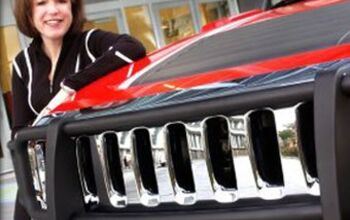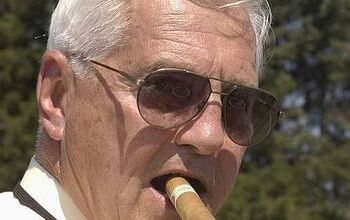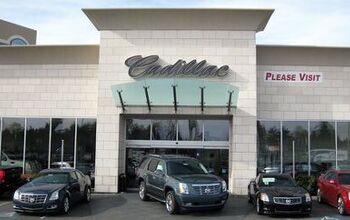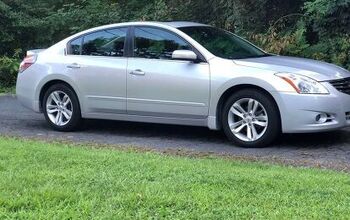Quote Of The Day: "Don't Blame Me For The Bailout" Edition
The Detroit News reports that former Vice President Dick Cheney claims to have opposed the decision to bail out GM and Chrysler, writing in his forthcoming memoir:
“The president decided that he did not want to pull the plug on General Motors as we were headed out the door… Although I understood the reasoning, I would have preferred that the government not get involved and was disappointed — but not surprised — when the Obama administration significantly increased the government intervention in the automobile industry shortly after taking office.”
Cheney notes he had voted against the 1979 $1.5 billion loan guarantee for Chrysler Corp. in the House. “I had continued throughout my career to be philosophically opposed to bailing out specific companies or industries,” he wrote.
But lest you think the 1979 vote makes Cheney a model of consistency, consider his defense of the $700b TARP expenditure:
Providing sufficient support to avoid the collapse of our banking system was something only the federal government could do. But, all things considered, companies in the private sector should be judged in the marketplace. Having the government intervene was not, in my opinion, a good idea.
I’ve been thinking about the bailout era a lot recently, as GM’s stock slumps towards an inevitable and significant government loss in the near future. I’m sure that when the government finally writes off the $14b+ loss, a political knifefight will ensue with all sides seeking to justify their positions on the matter. But where will that get us? After all, both political parties bear some responsibility for the decision, and it’s impossible to say what would have happened without the bailout. And if politicians and partisans make the final chapter of the auto bailout about politics, they’ll have missed the entire point… and provide a smokescreen for the real culprits.
GM and Chrysler have to live with their outstanding moral (if not legal) debt to the American people, and all eyes should be on those companies rather than the posturing politicians. How these private firms relate to the taxpayers who bailed them out will be the defining issue of their post-bailout existence, and one that should be taken extremely seriously in Auburn Hills and the Renaissance Center. I’m not sure I can say exactly what they should do about it, but the first step is to not run from reality (as has already happened too often in the past). The final tallying of the bailout bill will be a defining moment for these two companies… let’s hope they realize it, and act accordingly.
More by Edward Niedermeyer
Latest Car Reviews
Read moreLatest Product Reviews
Read moreRecent Comments
- SCE to AUX Figure 160 miles EPA if it came here, minus the usual deductions.It would be a dud in the US market.
- Analoggrotto EV9 sales are rivalling the Grand Highlander's and this is a super high eATP vehicle with awesome MSRPs. Toyota will need to do more than compete with a brand who has major equity and support from the automotive journalism community. The 3 row game belongs to HMC with the Telluride commanding major marketshare leaps this year even in it's 5th hallowed year of ultra competitive sales.
- Analoggrotto Probably drives better than Cprescott
- Doug brockman I havent tried the Honda but my 2023 RAV4 is great. I had a model 20 years ago which. Was way too little
- Master Baiter The picture is of a hydrogen fuel cell vehicle.






















![[Last] Quote of the Day: I Don't See A Problem There Edition.](https://cdn-fastly.thetruthaboutcars.com/media/2022/07/10/8979842/last-quote-of-the-day-i-don-t-see-a-problem-there-edition.jpg?size=350x220)










Comments
Join the conversation
aside from the fact that Red Ink Rick intentionally BK'd GM after his asset stripping bankster cash diversions and prior to his GOB appointment to the Post, it's been the horrific and inexcusable marketing at the root of GM's decades of decline that began shortly after the duPont divestiture. the gov't involvement is inconsequential long term as it's relative short term ownership stake occurred merely to effectively rinse the balance sheet and enable surgery on the liability side of the income statement in regard to lessening wages, benefits, environmental concerns and legal entanglements.
Here's a question for anyone who will answer it. The universal way that the government rescue of our largest auto company is called is the "General Motors Bailout". But what really was the bailout? It didn't bailout the owners of GM, the stockholder. They were completely wiped out. They didn't get a penny of the governments money. Likewise the creditors of GM got almost nothing. The few creditors with "mortgages" on the assets of GM got a very small payment, ten cents for each dollar they were owed. The creditors without a mortgage got nothing. The banks and the pensioners got nothing from the money that government put into the bailout. As far as I can tell the only people who got anything out of the bailout were the employees of GM. For the UAW union workers, the large majority of whom kept their jobs, kept their same pay and lost some of their of their benefits, but not much. So wasn't it the UAW and its workers who were bailed out, not the company or its banks. Am I wrong? Anyone, please tell me. And for whats it's worth I still can't decide whether the bailout was a good idea or not